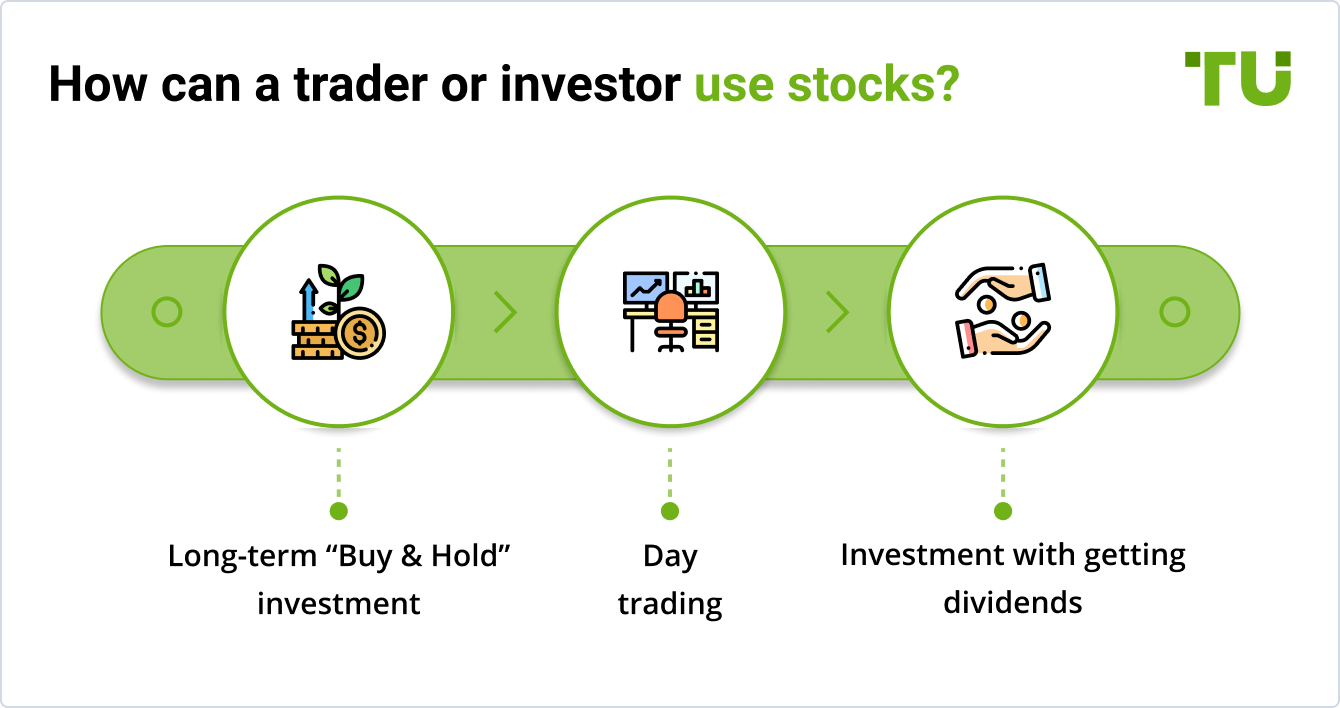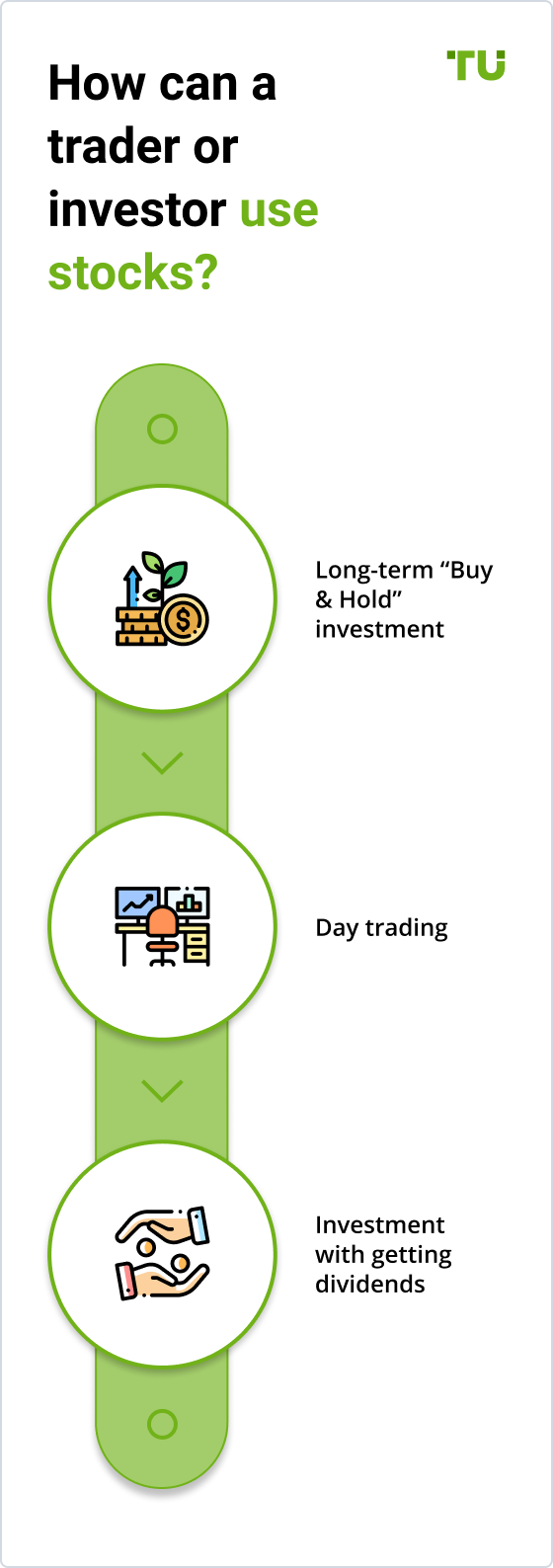What are stocks? How do Stocks Work? Why do Investors Buy Them?
Investing is a process of purchasing and holding income-generating assets. Individual stocks, exchange-traded funds (ETFs), mutual funds, real estate, and certificates of deposits are a few assets that an investor can purchase to earn a handsome return on investment.
Investing in the stock market and purchasing individual stocks is a dream of many people. This guide helps beginning investors gain a basic understanding of stock market investing enable them to start their investing journey.


What are stocks?
A stock is a certificate of security that represents fractional ownership of the company. Stock is a collection of equity shares into which the ownership of a company is divided. An investor becomes a fractional owner and shareholder of the company whose equity shares he purchases. The ownership of an investor in a company is determined by the number of shares he holds relative to the number of outstanding shares.
How do stocks work?
An organization issues the stock to the general public through Initial Public Offering (IPO). An IPO is the process of offering the shares of an organization to retail investors and institutional investors.
After going through the IPO, the shares of the organization would be traded on the stock exchange like New York Stock Exchange or NASDAQ. The shares are transferred from one investor to another on stock exchanges. The Securities and Exchange Commission (SEC) regulates these transactions to protect investors from fraud.
The factors that influence the stock price, both short-term and long-term, are:
-
Revenues
-
Cash reserves
-
Long-term debt and debt-equity ratio
-
Business expansion initiatives
-
Quality of management
-
Corporate governance principles
-
Government policies
-
Broader economic environment
Why do investors buy stocks?
Investors purchase stocks of an organization intending to generate a good return on the investment (ROI). Equity investing has historically generated huge ROI for investors. Investors, who purchase the shares of fundamentally strong companies and stay invested in them for the long term, are likely to generate handsome returns on their investments. For instance, Amazon has generated an annualized return of 28% for the last 15 years. So, capital appreciation is the foremost aim of investors purchasing shares of an organization.
Most organizations offer quarterly, half-yearly and annual dividends to investors. A dividend is the portion of the surplus profit that the organization distributes to its shareholders. Industries such as financial services, basic materials, utilities, and healthcare have a history of paying a higher dividend than others.
Why do companies issue stocks?
Companies issue stocks when they plan to raise funds for business expansion. Companies have two options to finance the business expansion.
They are:
-
Debt Financing
-
Equity Financing
Debt financing is a process of borrowing money from a financial institution or another eligible third party at a mutually agreed interest rate. The organization should repay the interest and principal amount as per the agreed timeframe. Equity financing is the process of issuing shares of the organization to raise funds. Organizations prefer equity financing because it does not carry any repayment obligation. Equity financing enables the organization to utilize funds on strategic initiatives without feeling the burden of repayment.
Companies also issue equity to maintain a suitable debt-to-equity ratio. Issuing stocks ensure that the company does not borrow more money than prescribed. The huge debt makes the company less attractive for lenders in the future. So, organizations issue stocks to maintain financial stability and improve future borrowing ability.
Issuing stock to the public is an important element in the lifecycle of any company. The public limited companies gain huge traction in the market, both in terms of publicity and credibility. Though this benefit is intangible, it helps the organization attract big customers and improve profitability.
What does it mean to own stocks?
A shareholder is a person who owns at least one equity share of the company. As a part-owner, a shareholder can reap the benefits of the business’ success. They enjoy capital gains and dividends from the company.
Shareholders of an organization enjoy the right to:
-
Voting power
-
Transfer ownership
-
Sue the company through shareholder class-action suit.
-
Inspect corporate books
-
Seek an explanation from the top management of the company
Shareholders are just part-owners of the organization; they cannot possess or use the assets owned by the company. They don’t have the right to dictate business strategies and demand dividends. Shareholders are not liable for the decisions and actions the top management of the company takes.
Main Types of Stocks
Stocks can be classified into several types based on various characteristics like market capitalization, dividend-paying history, and revenue growth prospects.
Some of the classifications of stocks, including but not limited to, are:
-
Preferred stocks
-
Common stocks
-
-
Growth stocks
-
Dividend stocks
-
Blue-chip stocks
Common vs. Preferred Stocks
Common stocks are ordinary shares issued to the general public and owners of the company. Common shares can be purchased and sold on the stock exchange. Common shares give the right to vote on major corporate decisions.
Preferred stocks are also called preference shares. Preferred stock is a class of stock that gets preference at the time of liquidation. The preferred stockholders receive dividends before the common stockholders. However, they are not entitled to vote in shareholder’s meetings. Risk-averse investors often choose preferred stocks.
Penny Stocks
Penny stocks are the common shares of small-scale public companies that trade below $1 per share. The penny stocks are traded over-the-counter rather than on the trading floor. Penny stocks are highly volatile due to a lack of market liquidity. Penny stockholders often find it very difficult to cash out their positions due to the non-availability of buyers.
Growth Stocks
Growth stocks are the stocks of companies that have the potential to exceed expectations in cash flow, revenues, and market share. These companies would grow at a much faster rate than an average company within the same industry.
Dividend Stocks
Divided stocks are the stocks of companies that pay consistent dividends to shareholders. These companies generate good revenues every year and distribute a portion of profits to shareholders.
Some of the well-known dividend stocks in the United States in January 2023 are:

AT & T (NASDAQ: T) with a forward dividend yield of 7.64%

ExxonMobil (NYSE: XOM) with a forward dividend yield of 5.8%

Chevron Corporation (NYSE: CVX) with a forward dividend yield of 5.4%
Blue-chip Stocks
Blue-chip stocks are the stocks of large-scale organizations with high credibility and reputation in the market. These companies are the leaders in their respective industries. The best examples for blue-chip companies are Amazon (NASDAQ: AMZN), Microsoft Corporation (NASDAQ: MSFT), and The Procter & Gamble Company (NYSE: PG).
Are Stocks Risky?
Risk and returns go hand in hand. If you don’t take the risk, you would not reap the benefits.
Stock markets are risky if you:
-
Don’t adopt an appropriate investing behavior
-
Allow your emotions like fear and greed to make investing decisions
-
Don’t have a long-time investing horizon
-
Invest based on the suggestions of your friends or relatives who don’t have an expertise
-
Don’t conduct fundamental analysis on companies before investing
Stocks are inherently volatile. They react to macroeconomic and political events in the short term. They also react to capital expenditure decisions, quarterly earnings, rumors on the top management.
For example, an unfavorable election outcome might bring down stock prices a couple of days before the normalcy returns. The poor quarterly results can also result in panic selling among investors. However, these are short-term phenomena and don’t impact the ability of the stock to generate a return in the long term. This volatility does not mean anything to investors who stay invested, in a fundamentally good stock, with a longer time horizon.
Penny stocks could be risky as these companies are fundamentally weak. They don’t have established businesses and sustainable business models. They struggle to manage the day-to-day operations. Investors should also understand that penny stocks are illiquid. It is very difficult to buy and sell positions in them. Penny stocks are speculative because of their wide bid-ask spreads and price quotes.
How much does Investing in Stocks Cost?
Several costs are associated with stock market investing or trading.
They are:
-
Fees charged by regulatory agencies or exchanges
-
Deposit and withdrawal fees
-
Stock transfer fees
-
Postage fees
Let us take Webull, one of the well-known online trading platforms, as an example to identify costs.
| Instrument | Charged by | Type of Fee | Calculation | Rule |
|---|---|---|---|---|
Stocks/Exchange-traded funds (ETFs) |
Webull as a pass-through transaction |
Regulatory |
$0.0000051*Total $ Trade Amount (Min $0.01) |
Sell only |
Financial Industry Regulatory Authority (FINRA) |
Regulatory |
$0.000119 * Total Trade Volume Min $0.01 per - Max $5.95 per trade |
Sell only |
Deposit and withdrawal fees
ACH Deposit and Withdrawal to any U.S. bank is free on Webull. However, deposits and withdrawals via wire transfer using any U.S. bank account attract a fee of $8 and $12 per transaction respectively. Deposits and withdrawals via wire transfer using a non-U.S. bank account attract a fee of $12.5 and $45 per transaction respectively.
Stock Transfer Fees
Stock transfer refers to the process of transferring stocks from one brokerage account to another. The fee for transferring stocks to Webull from another platform is zero. However, transferring stocks from Webull to another broker would cost around $75 per stock transfer to investors.
Postage Fees
The clearing corporations charge postage fees. As reported by Webull, investors should bear the following fees:

The Paper Confirm Fee of $2 per confirm

The Paper Statement Fee of $5 per statement

The Paper Prospectus fee of $2.5 per mail.
Best online stock brokers in 2024
According to the Financial Industry Regulatory Authority (FINRA), there are over 3,400 securities firms in the U.S. However, not all of these stockbrokers offer seamless services. An investor or trader should closely evaluate a wide range of stockbrokers before choosing a suitable one. We have identified the five best online stockbrokers who are reliable and facilitate trading at minimum costs.
The five best online stockbrokers in the U.S. are:
-
eToro
-
Webull
-
Robinhood
-
Charles Schwab
-
TD Ameritrade
| Broker | Account Minimum | Stocks Fees | Stock Markets | |
|---|---|---|---|---|
$10 |
None |
US, EU, Saudi, Hong Kong |
|
|
$0 |
$0 per trade |
The United States, India, Brazil, Turkey, Japan, China, and Korea. |
||
$0 |
$0 per trade |
The United States (NYSE and NASDAQ). |
||
$0 |
$0 per trade |
In addition to the United States, Charles Schwab is available for online trading in 12 foreign markets in their local currencies. |
||
$0 |
$0 per trade |
The United States and Canada. |
Summary
To conclude, stock market investing is a great way to generate passive income. By purchasing stocks, investors would become fractional owners of organizations. Investors need to adopt appropriate investing behavior, choose fundamentally strong companies, and monitor their financial stability regularly to generate handsome returns. Stocks are inherently volatile. Penny stocks are speculative due to their illiquid nature and the non-availability of buyers. A few of the best stockbrokers are Webull, Interactive Brokers, Robinhood, Charles Schwab, and TD Ameritrade.
FAQs

What is the minimum amount I should have to start investing?
You can start investing in individual stocks with just $500. Several mid-cap and large-cap companies are trading below $50. You can purchase around 10 shares of these companies for $500 to start your investing journey.

Can I invest in penny stocks?
If you don’t have experience in stock market investing, do not invest in penny stocks. Their volatile nature can wipe away your capital and put you off from investing. You can look at penny stocks once you gain some experience on how stock market investing works.

Can I invest in ETFs?
Yes, ETFs are the best investment options for beginners. These are low-cost investment funds traded on stock exchanges. You can invest in NASDAQ-100 ETF that offers returns equal to NASDAQ 100 Index. ETFs are likely to be less volatile than individual stocks.

What are the best investment books or resources I can read?
1. The Intelligent Investor by Benjamin Graham
2. One Up on Wall Street by Peter Lynch
3. Shareholder Letters of Warren Buffett
Team that worked on the article
Andrey Mastykin is an experienced author, editor, and content strategist who has been with Traders Union since 2020. As an editor, he is meticulous about fact-checking and ensuring the accuracy of all information published on the Traders Union platform. Andrey focuses on educating readers about the potential rewards and risks involved in trading financial markets.
He firmly believes that passive investing is a more suitable strategy for most individuals. Andrey's conservative approach and focus on risk management resonate with many readers, making him a trusted source of financial information.
Dr. BJ Johnson is a PhD in English Language and an editor with over 15 years of experience. He earned his degree in English Language in the U.S and the UK. In 2020, Dr. Johnson joined the Traders Union team. Since then, he has created over 100 exclusive articles and edited over 300 articles of other authors.
The topics he covers include trading signals, cryptocurrencies, Forex brokers, stock brokers, expert advisors, binary options. He has also worked on the ratings of brokers and many other materials.
Dr. BJ Johnson’s motto: It always seems impossible until it’s done. You can do it.
Mirjan Hipolito is a journalist and news editor at Traders Union. She is an expert crypto writer with five years of experience in the financial markets. Her specialties are daily market news, price predictions, and Initial Coin Offerings (ICO). Mirjan is a cryptocurrency and stock trader. This deep understanding of the finance sector allows her to create informative and engaging content that helps readers easily navigate the complexities of the crypto world.












